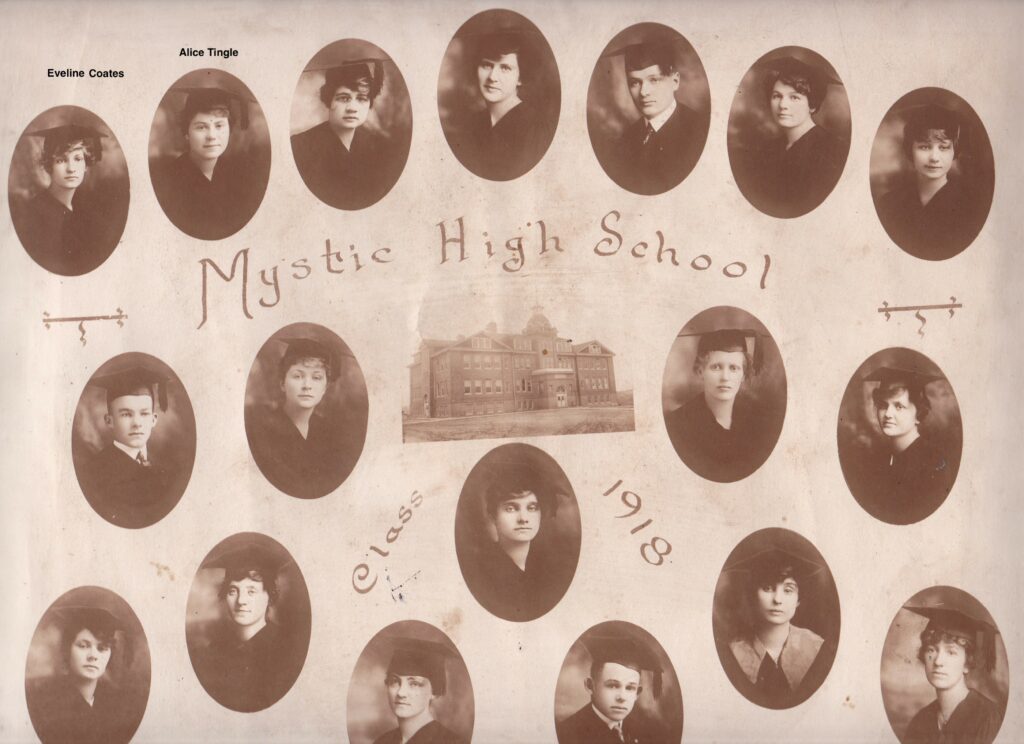
I shared a photo of my grandmother Eveline Coates’ high school graduating class in Mystic, Iowa a few weeks (now months!) ago. Along with the photo and her diploma, a couple of other mementos were saved. One is the program for the Junior-Senior Banquet in honor of the graduating Seniors. It was interesting to see how World War I seemed to be the overarching theme of the festivities. I decided to take a deeper look at what her life may have been like during the 1917-1918 school year. There was a lot going on, a war and the beginning of an influenza pandemic to name the two biggies. The list of related posts is getting long, so I’ll link them at the bottom.
Shortly after the United States entered World War I, the U. S. Food Administration was formed, with an unpaid Herbert Hoover acting as the administrator. Hoover believed that if he volunteered his time, he would be better able to convince Americans to voluntarily join the three-pronged effort to produce, preserve, and conserve food. As I mentioned in my previous post, these educational and persuasive efforts were primarily directed at women.
Women were guilted (I know that isn’t really a verb) and “invited to co-operate” to win the war in their kitchens.
Increase Production
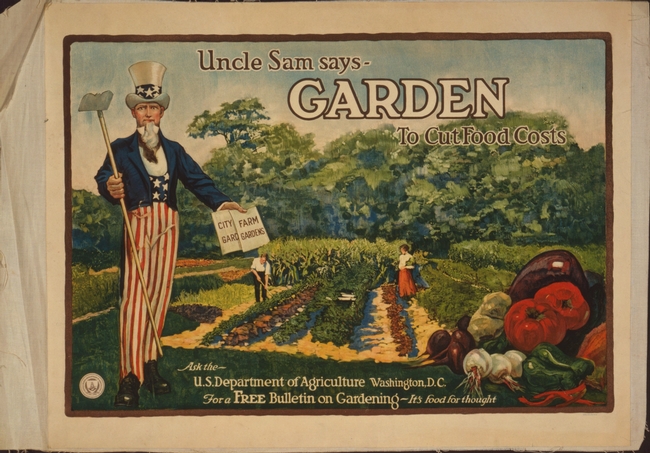
Families were encouraged to maintain a “war garden” to increase the available food supply locally. This would save on transportation costs to get food to families that could better be used for transport of soldiers or food to feed solders and our allies. In the words of today, “eat local.” The Centerville paper ran a gardening column 2-3 times a week, provided by the federal government. The topics varied from pest control to growing particular fruits or vegetables. Here are some sample headers from the Centerville newspapers:



Any idle land or vacant lot was to be used for gardening. The Burlington Railroad offered right-of-way for this purpose.
I didn’t find anything particular to Mystic, but the county seat of Centerville formed a War Garden organization and local businesses also got on board.
Since no vacant lots were to remain idle, I guess kids around the nation lost their playing fields.
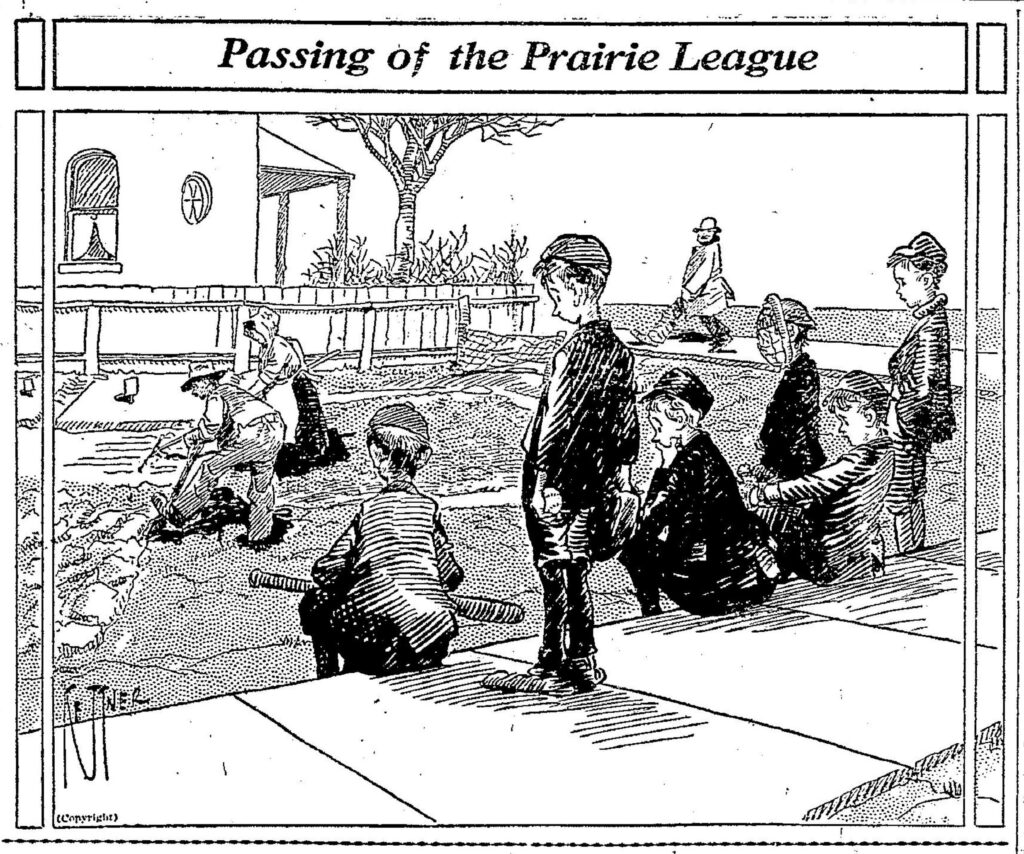
1918 April 11
Preserve
Now that your war garden was producing well, it was time to preserve the food you grew. Do not waste any food! Americans were told that this would also relieve the canning industry so that products that could go to soldiers would not be diverted for domestic use. I had never thought about when home canning became popular, but the war was a great motivator to increase home canning. Newly organized home demonstration agents were assigned to each county to teach canning and drying methods to preserve food.

1917 Jun 01
A canning demonstration was held in Mystic the morning of July 7th.
In addition to the canning demonstrations, there were frequent articles about canning prepared by the federal government for publication. These included instructions for making vinegar, a variety of pickled produce, tomato sauce, ketchup, and other food stuffs, but my favorites would have been the fruit butters. I had never heard of fruit pastes until I read the article below. Maybe fruit paste is similar to modern fruit roll-ups?
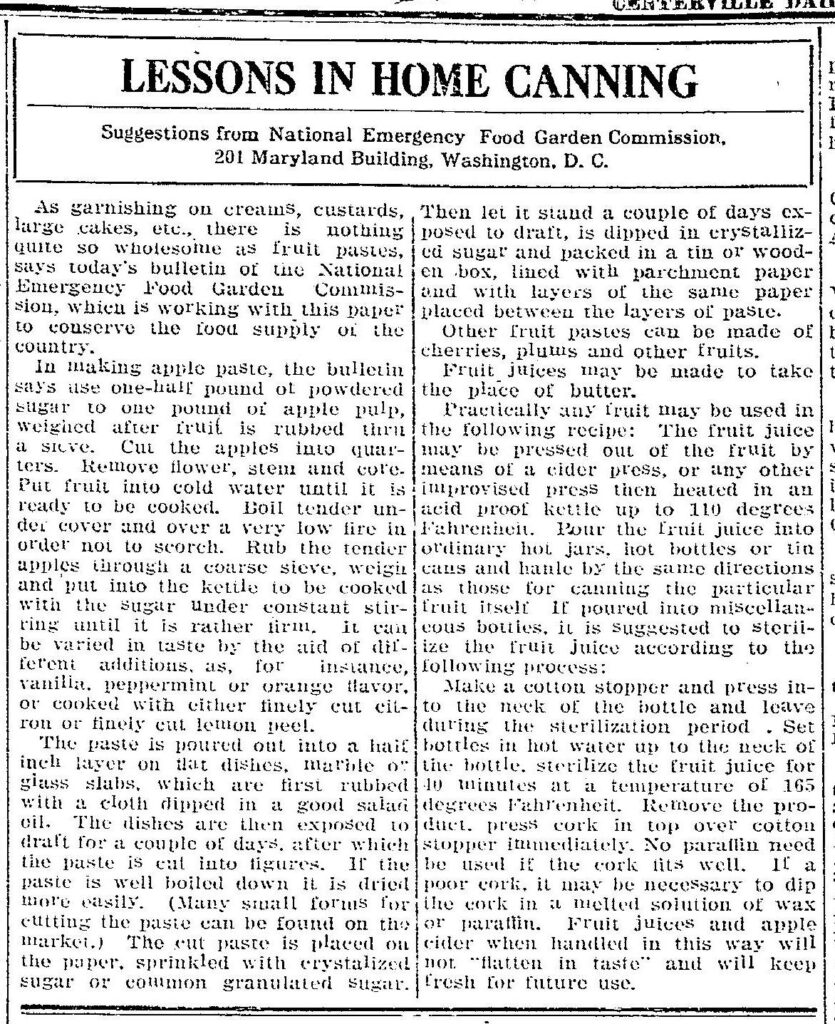
1917 Sep 18
I don’t know the extent that food preservation was encouraged at school or if kid’s clubs or after-school programs encouraged the youth of Mystic to join the effort to preserve food. Perhaps they heard about a Girl Scout who won the first canning award in Washington.
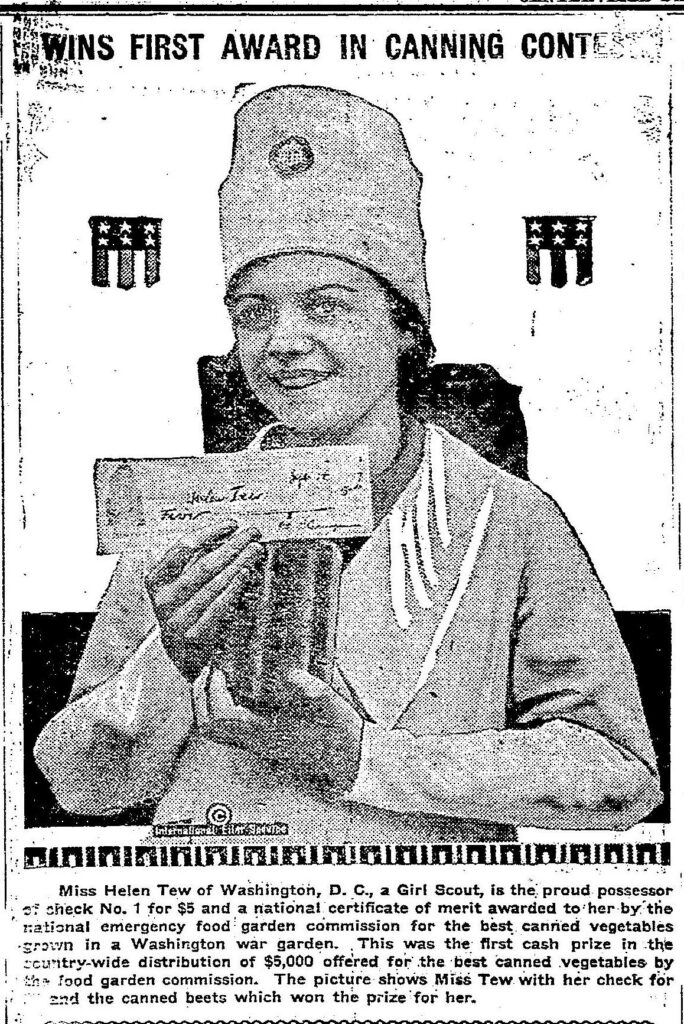
1917 Oct 15
German propaganda was reported to be hampering the efforts of the food campaign, particularly in rural areas with high numbers of immigrants. I wonder if this happened in Mystic, a small town with a large immigrant population.
Conserve
Again, the federal government supplied articles for publishing. Below are a few headlines. Each included instructions or recipes.
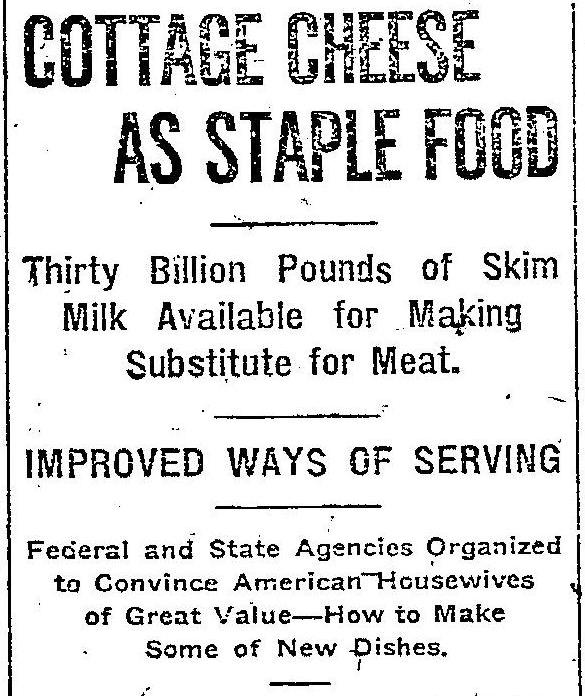
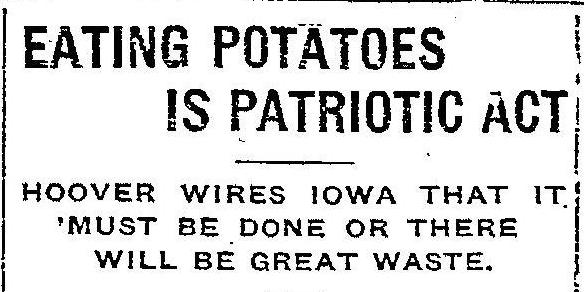
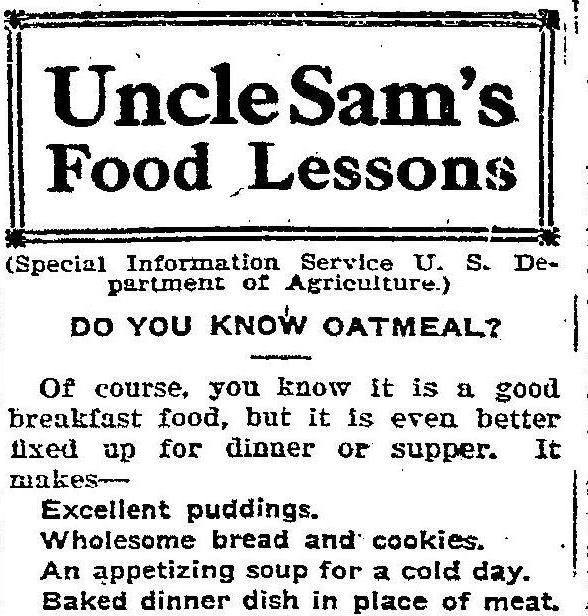
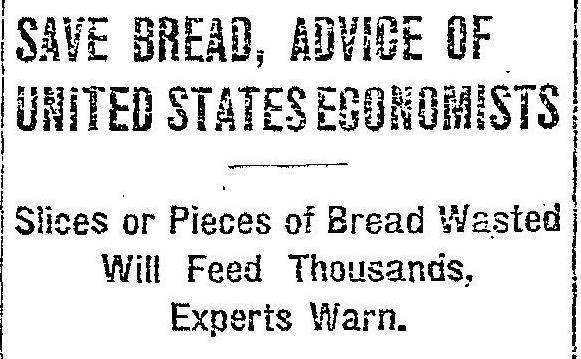
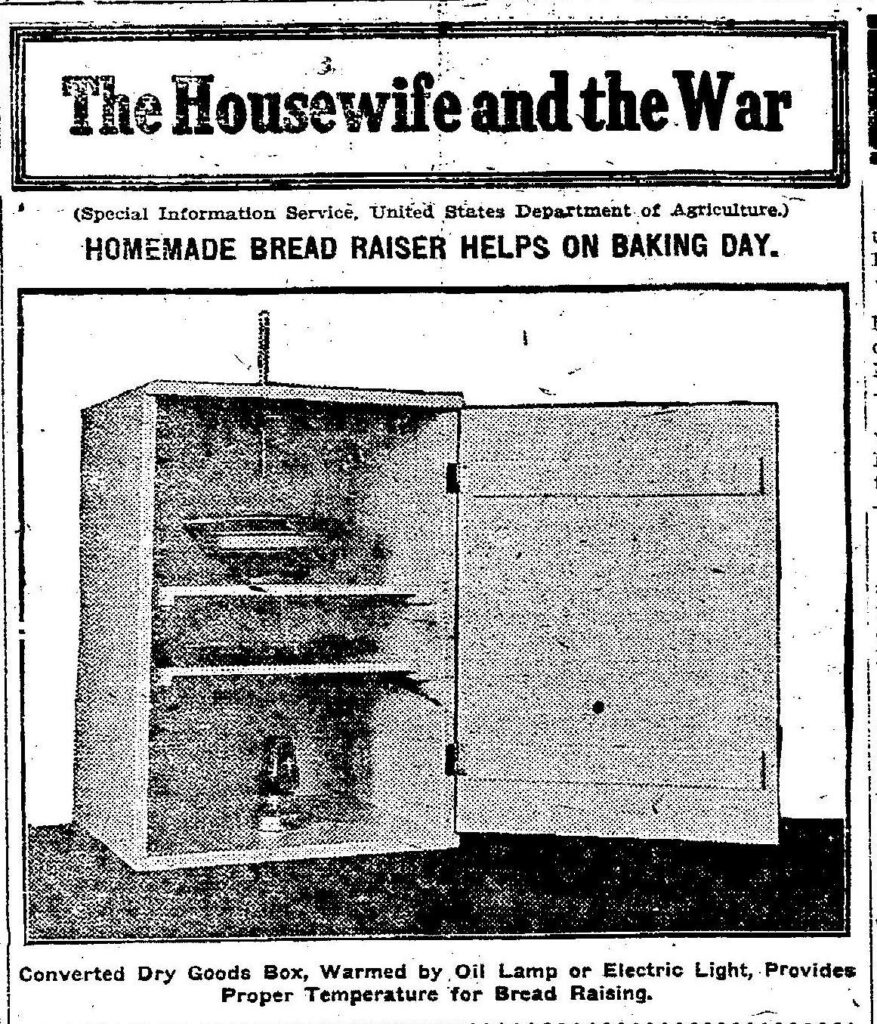
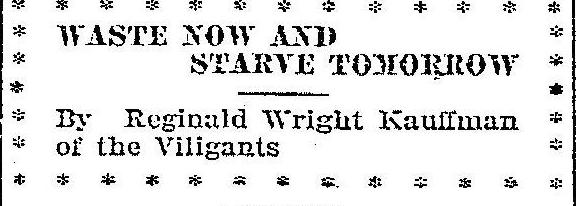

Another tool of the food campaign encouraged families, hotels, and restaurants to plan meals around Meatless Tuesdays and Wheatless Wednesdays.

And, of course, it was important to conserve sugar.
A local cartoon implied that Appanoose County was doing its part to conserve food.
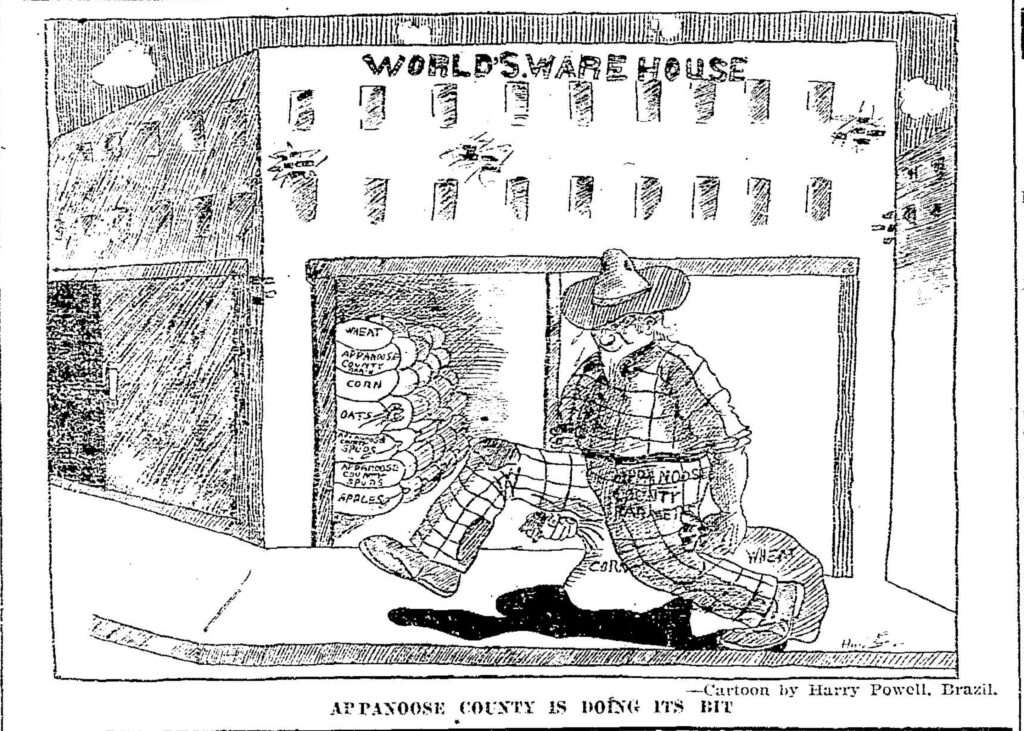
1917 Jul 16
Another bit of propaganda aimed at women was a series of letters purported to be written by Frances, a woman in Washington, D. C., to her sister Edith, in Michigan. The letters all had the tag line “The Soldier-Woman.”
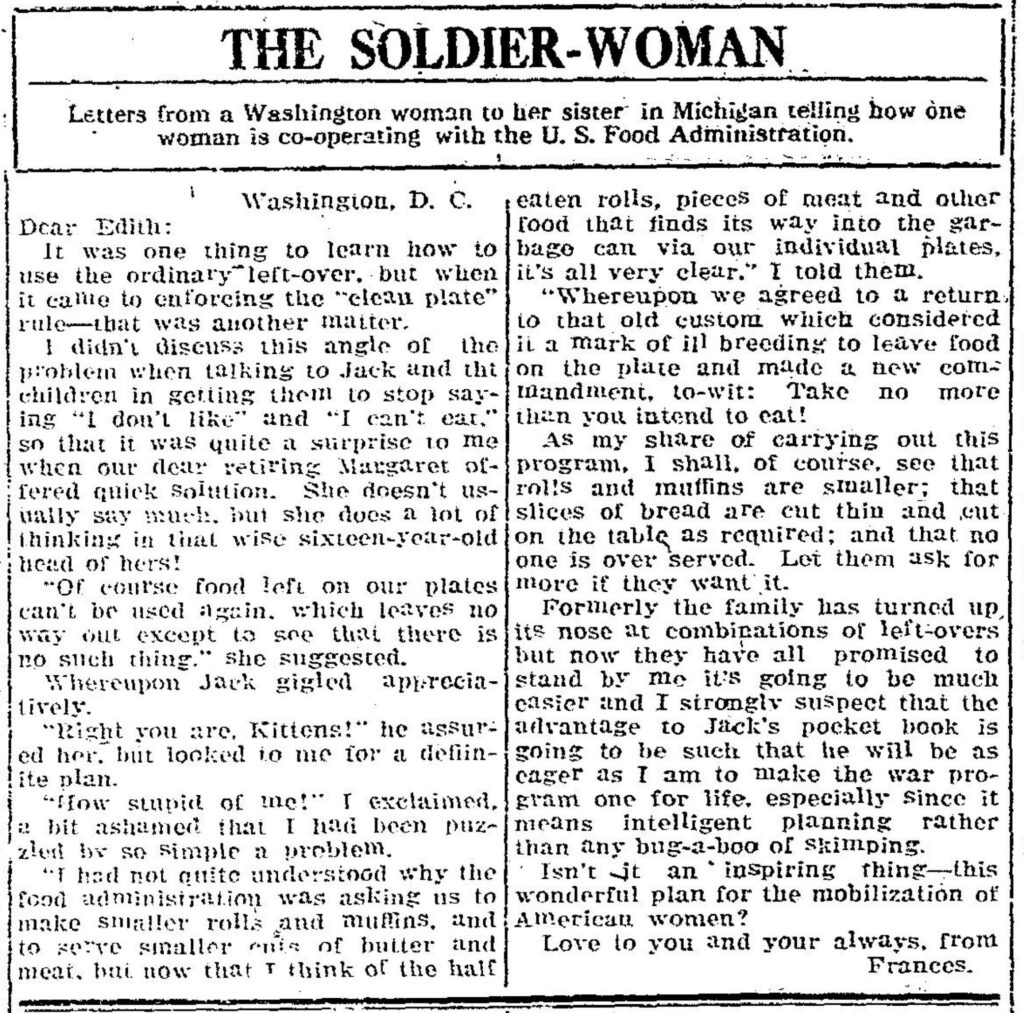
1917 Nov 28
What did this all mean for Eveline?
Well, of course, I don’t really know. My grandmother Eveline always had a very large garden and canned lots and lots of vegetables for the winter. I assume that this was a practice learned in her early years. Her family was subject to rations of sugar and flour, shortages, and the pressure to change dietary and cooking habits. One thought that came to mind while doing this research: Eveline was a young mother during the Depression and my mother was a Depression baby. My mother was a “saver” as were many people of that generation – a result of being raised during that time of lack. But this made me think that, not only did Eveline live through the Depression, but through this rather intense campaign to save and never waste food – a double whammy of influence that was likely passed on to her children.
I found this interesting/amusing pamphlet about war gardens if you have further interest in the subject. It is full of cartoon and poems. The War Garden Guyed.
And just because, I’ll end with this poem that was printed in Eveline’s local newspaper.
Once again, this is my very late contribution to Sepia Saturday – or in my case, Sepia Tuesday! Please visit the more timely entries in response to the prompt photo below.
If you would like to read other posts about Eveline’s Senior Year, you can find them here:
Eveline’s Senior Year, Part 1
Eveline’s Senior Year: The Draft and a Carnival
Eveline’s Senior Year: A Look Around Town
Eveline’s Senior Year: Musical Notes
Eveline’s Senior Year: Smallpox
Eveline’s Senior Year: What are you Serving?
Eveline’s Senior Year: Root Beer on the 4th
Eveline’s Senior Year: Miners, Miner and Maps
Eveline’s Senior Year: The Weight of Mining
Eveline’s Senior Year: Gatherings and Gossip
Eveline’s Senior Year: Knit Your Bit
Eveline’s Senior Year: In Search of a Back Story
Eveline’s Senior Year: Sign the Food Pledge

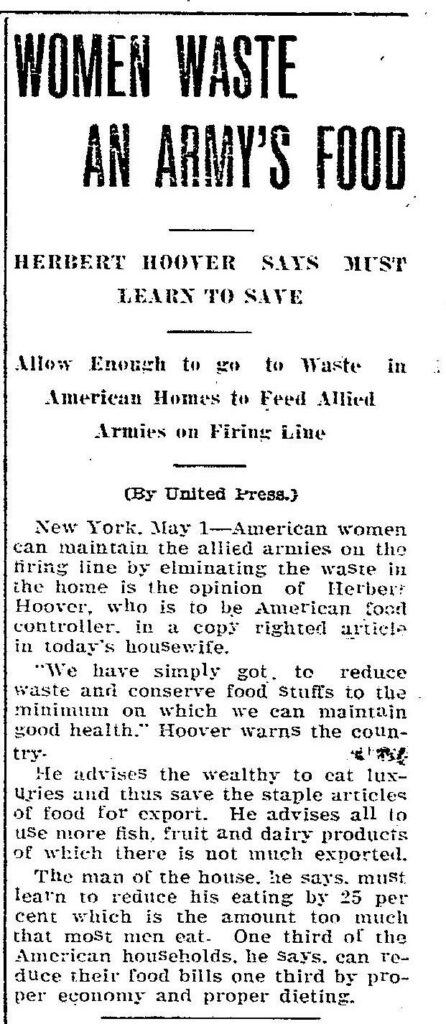
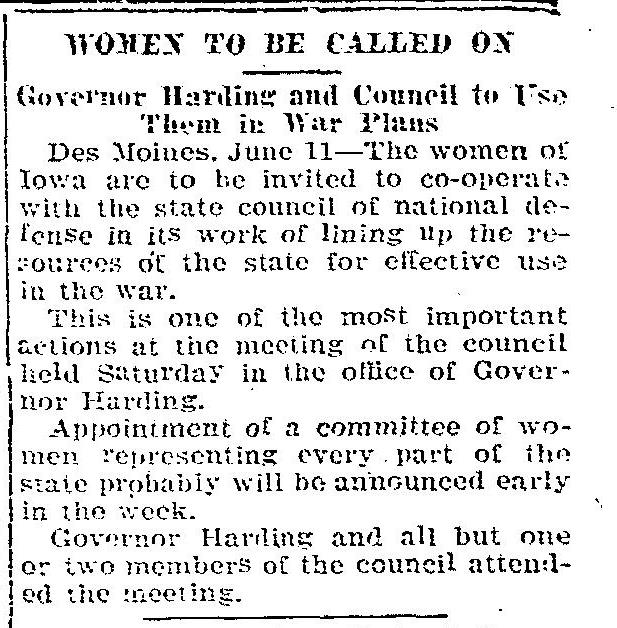
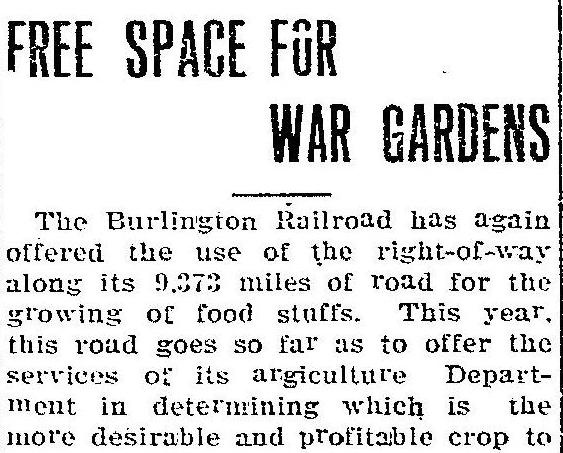
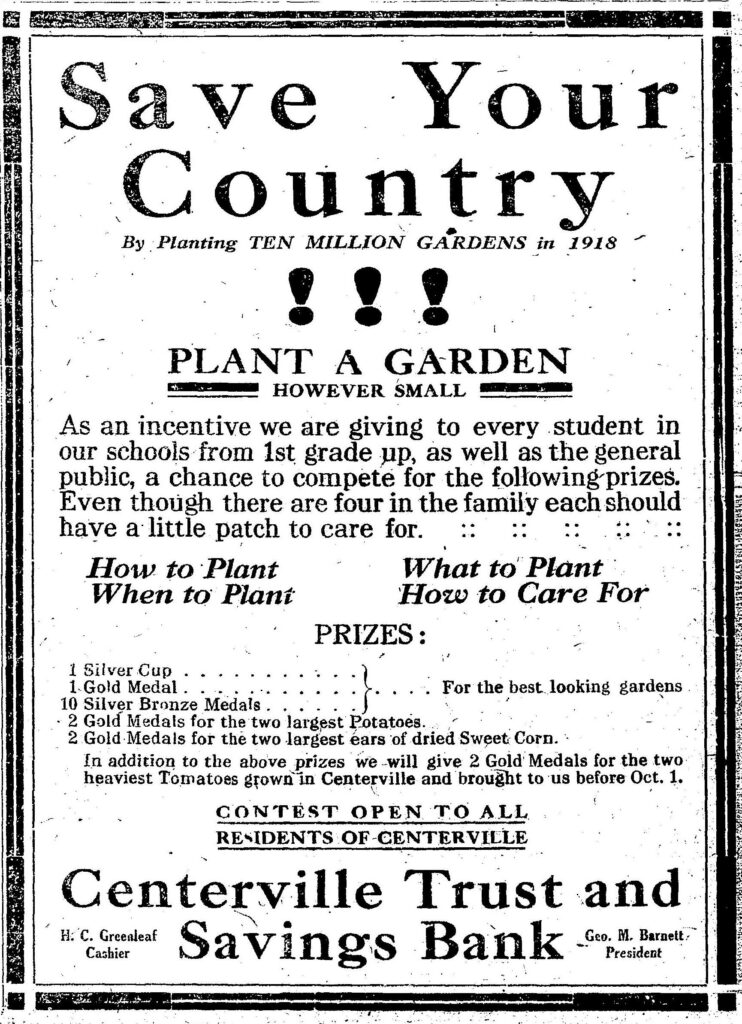
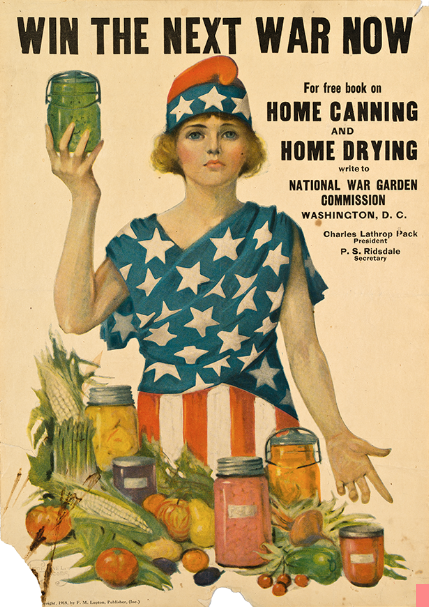
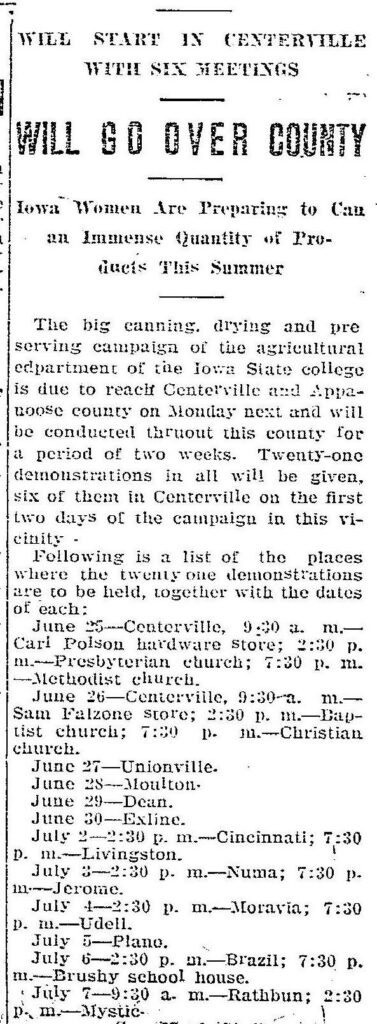

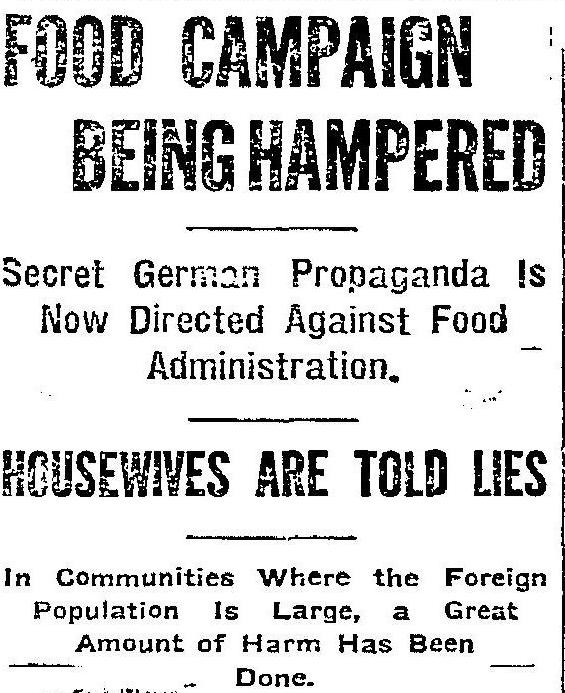
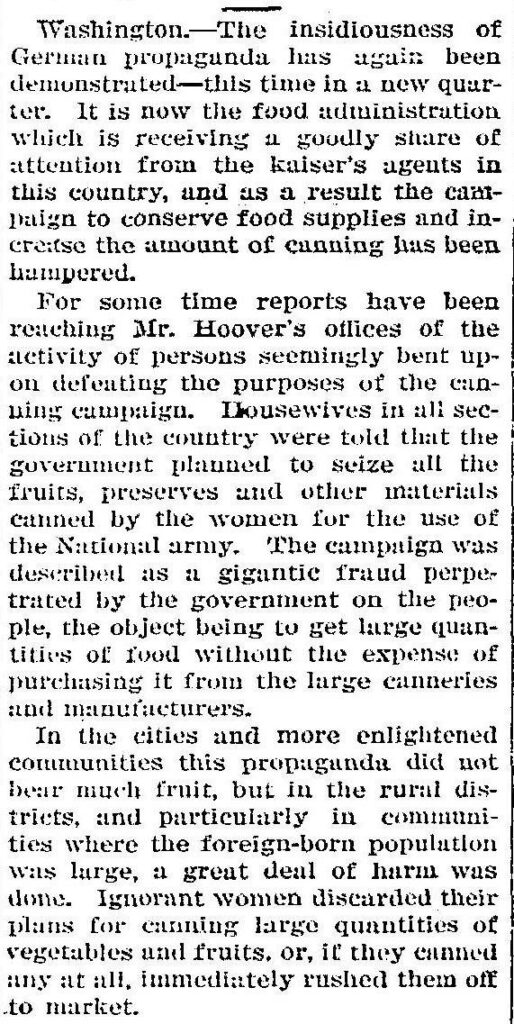
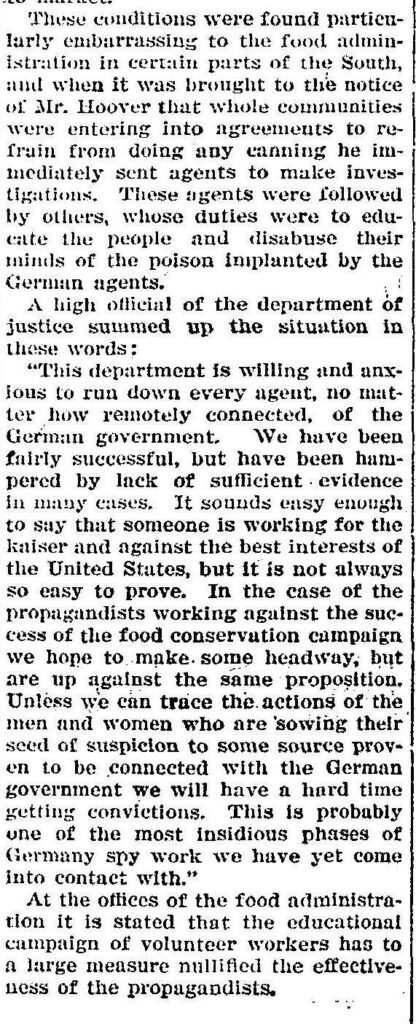
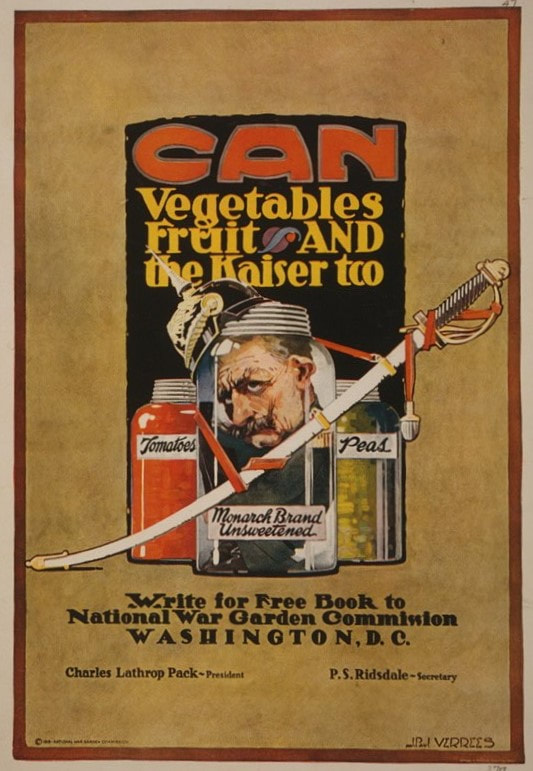
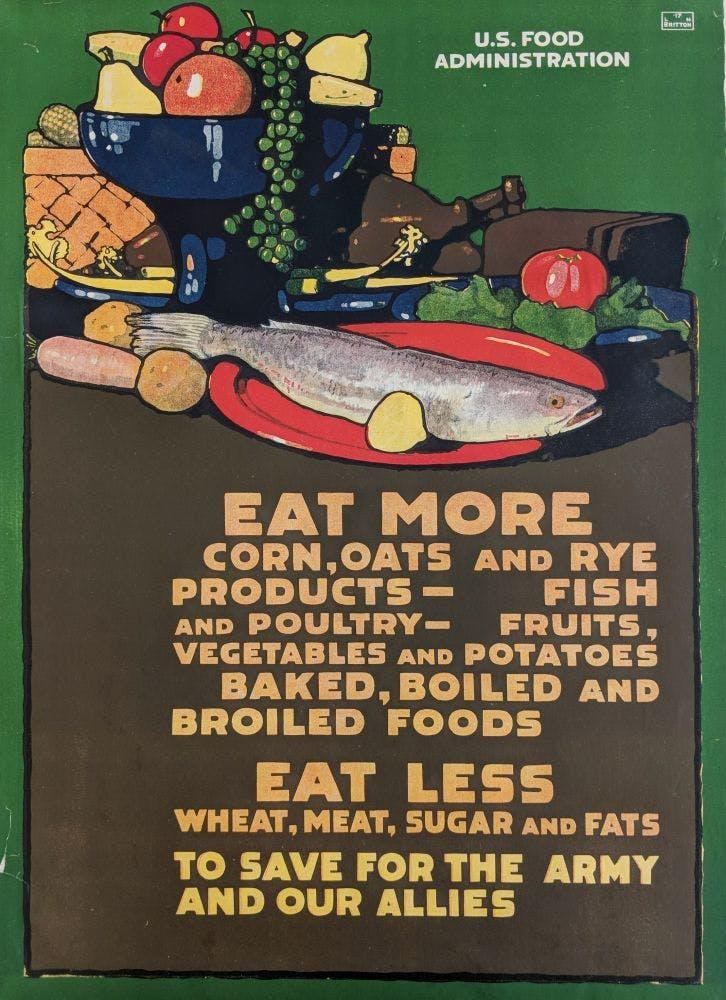
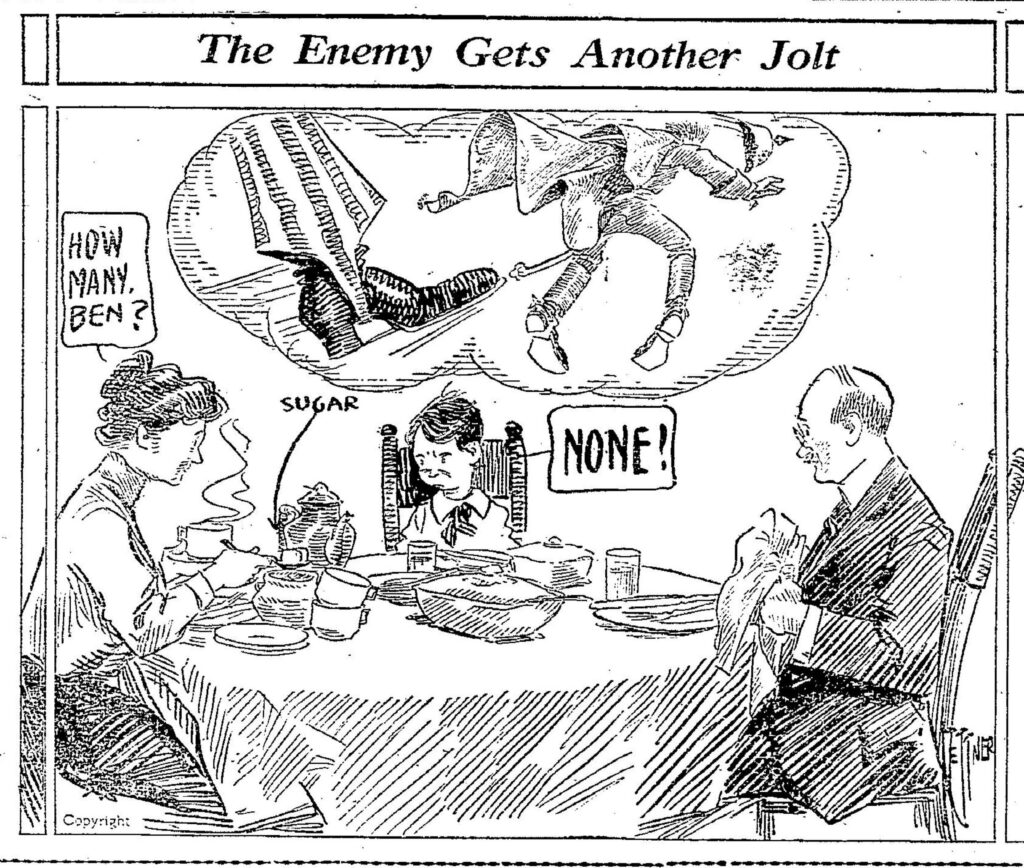
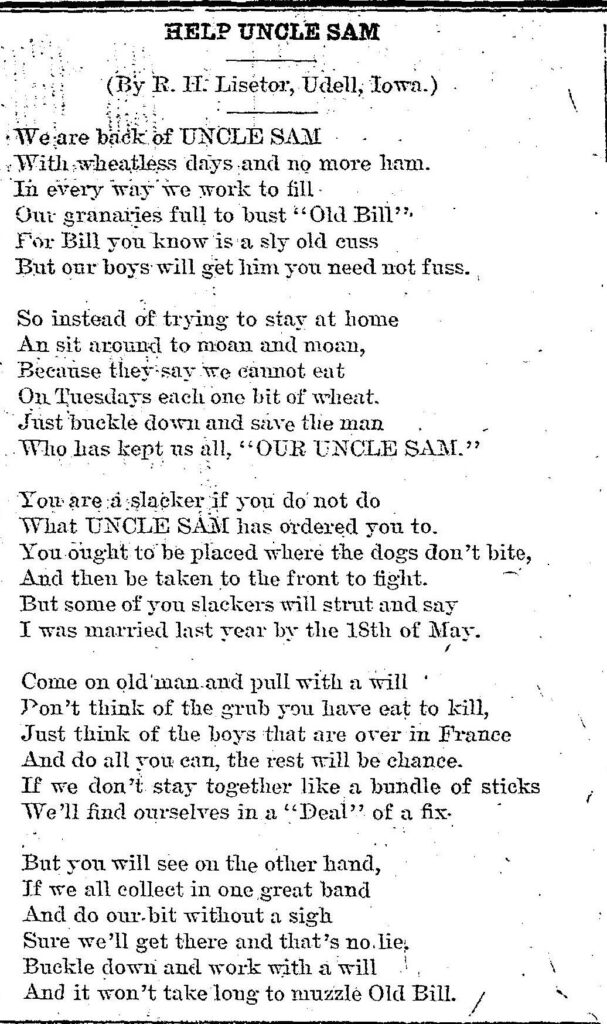
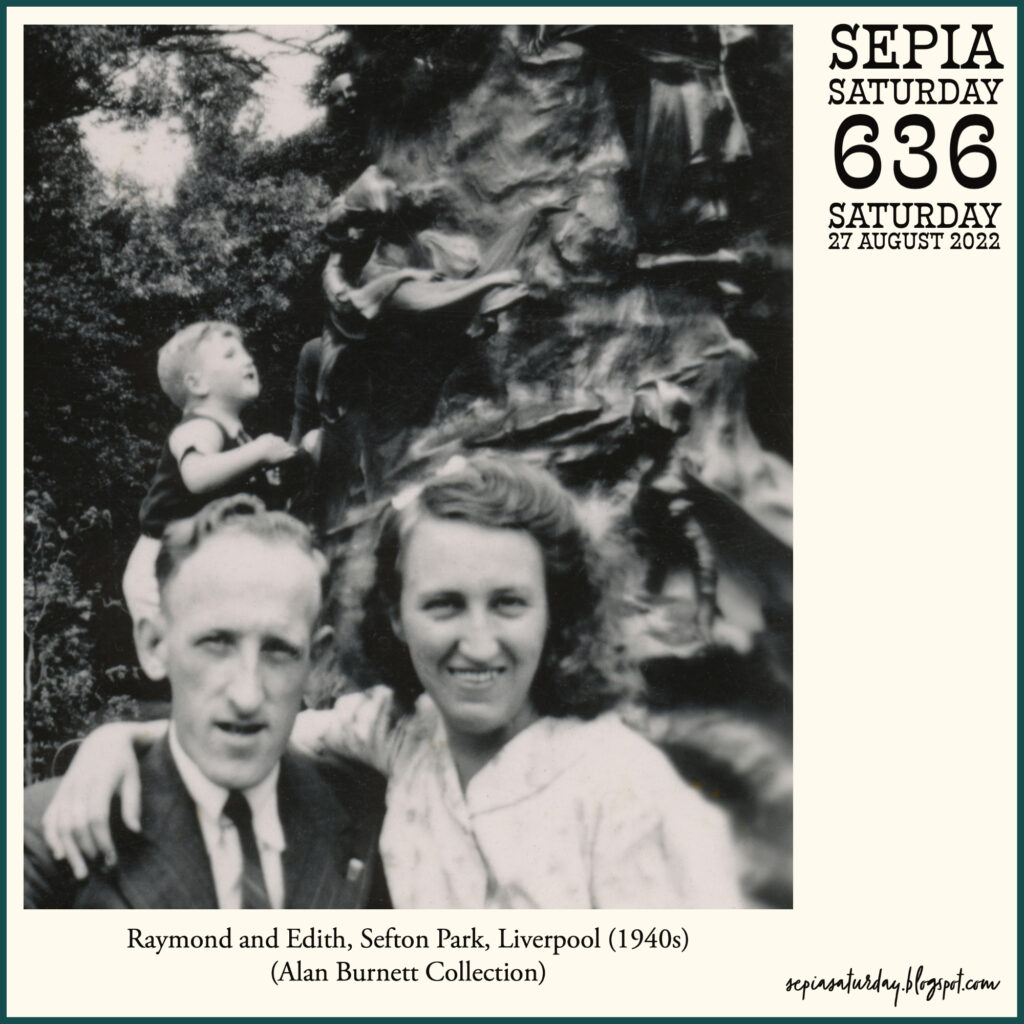
This is a terrific history lesson on how Americans once cooperated with each other for a common goal. I really liked the cartoons and the poem. I bet there were songs too. The “victory gardens” were common in Britain and in other countries which endured real privation during the war. I’m sure you are right that this experience prepared Eveline for the difficult challenges America faced during the depression, ironically during President Hoover’s tenure. For contrast look up Germany’s “Turnip Winter” of 1916-17. Because of the naval blockade, Germany had no food imports, largely from Russia and the US. A bad harvest forced German authorities to ration food to a level that was 1/2 the recommended amount needed. The only food left was turnips. It led to a lot deaths from malnutrition and caused civil strife in both military and civilian populations that contributed to Germany’s eventual defeat.
I had not heard of the Turnip Winter. Thanks for encouraging me to look it up.
I’l bet there were some songs related to food and several of the other topics I’ve covered, but I didn’t go looking for them. This series could go on forever!
I found some of the same types of articles when I was researching 1917-1918. I looked up fruit paste and found “Fruit pastes (also known as fruit cheeses) are firm, semi-opaque preserves that have a high fruit content – much higher than any other fruit preserve.” http://www.foodpreserving.org/2014/03/what-are-fruit-pastes.html
Thanks for the link. I’m sure it was a treat if your mom went to the time and trouble to make it.